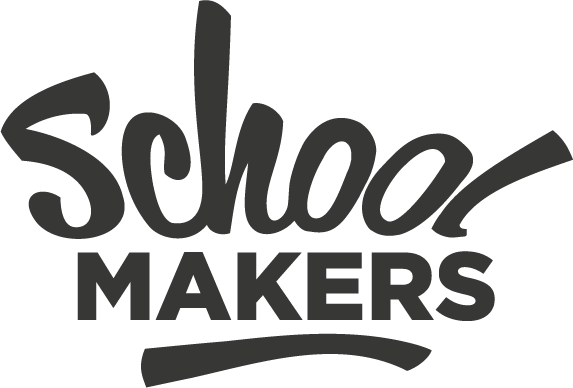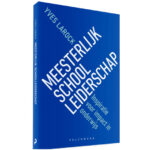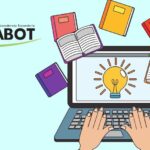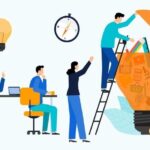
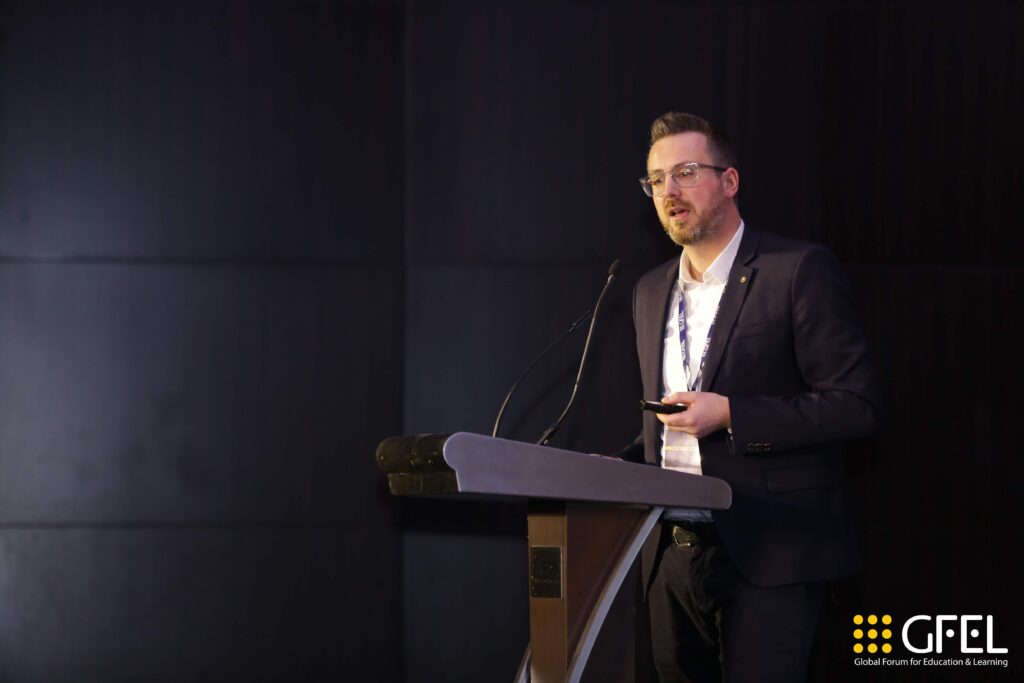
Fifteen global challenges in education
 From India to the States, from Saudi-Arabia to Switzerland: the educational challenges we face are more similar than we could have imagined before attending the Global Forum for Education and Learning as Schoolmakers (Dubai, 16th-18th Dec. 2019).
From India to the States, from Saudi-Arabia to Switzerland: the educational challenges we face are more similar than we could have imagined before attending the Global Forum for Education and Learning as Schoolmakers (Dubai, 16th-18th Dec. 2019).
All over the world, we are dealing with the same issues when it comes to making learning and education work. Most of the time these issues are as old as humankind. Sometimes they seem to be more related to the digital times we live in, or to more recent tensions, e.g. the one between a more individual/economic and a more collective/societal perspective on education. Although we have to wonder: are those tensions really new?
 It feels comforting that the quests of educational professionals all over the world seem so familiar. Knowing that we are all looking for answers to the same questions, connects us to a bigger picture and prevents us from navel-gazing. In a way, it makes our own daily search for answers more worthwhile. Being able to share possible answers was what made GEFL so interesting.
It feels comforting that the quests of educational professionals all over the world seem so familiar. Knowing that we are all looking for answers to the same questions, connects us to a bigger picture and prevents us from navel-gazing. In a way, it makes our own daily search for answers more worthwhile. Being able to share possible answers was what made GEFL so interesting.
Except for discovering that we all face the same challenges, our two main takeaways from the GFEL were the following:
- Schools are priviliged settings / institutions where ‘becoming knowledgeable’ is losing ground to different, often more flexible and accessible (including physically accessible) settings and forms of learning.
- What is disruptive to some, is ‘continuous improvement’ to others. Disruptive change impacts the core of what education is and how we organise it. Continuous improvement gradually and incrementally change how schools function. This tension is also seen in our Flemish educational landscape, as exemplified by the many ‘new’ schools popping up as well as all those school reinventing themselves step by step.
 The challenges outlined below confirm that the nature of learning is complex and that educational systems are to be designed in a certain context with specific goals, learners, opportunities and thresholds. By definition, education is a matter of human choices and human interaction – even in online or blended settings. That makes education unpredictable, hard to manage or change, and a matter of ideology. And that is exactly what makes it beautiful as well.
The challenges outlined below confirm that the nature of learning is complex and that educational systems are to be designed in a certain context with specific goals, learners, opportunities and thresholds. By definition, education is a matter of human choices and human interaction – even in online or blended settings. That makes education unpredictable, hard to manage or change, and a matter of ideology. And that is exactly what makes it beautiful as well.
Though we collectively keep questioning ourselves and our work (apparently), we also want to underline that there is such a thing as an evolution in our understanding of education. We can fall back on centuries worth of experience, we gain scientific insight into how learning works and into what constitutes quality of education. Let us use that expertise to put solutions into practice. Only that way can learn by doing and ascertain that change is for the better.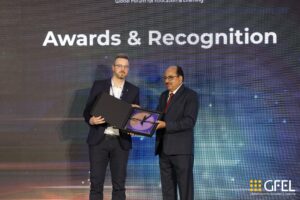
We have enjoyed our stay in Dubai in many different ways. For those who read Dutch, you can find our daily wrap-ups here (Day 1, Day 2, Day 3). We want to thank GFEL for the award and the opportunity to take part in this conference.
This list summarizes fifteen global educational challenges. The bullet points below each challenge concretizes the challenge, without attempting to be exhaustive.
- Use of data to improve learning
- How should we collect data in a way that their use contributes to making students’ learning more effective?
- How do we invest in data mining/learning analytics whilst cherishing the non- or less measurable benefits of education?
- The government’s role in quality management of schools
- “Trust in teachers is good, controlling teachers is better.” Is it? And if so, what does that mean?
- How do we create a culture of quality management without losing ourselves in endless quality procedures?
- Education in the digital era
- Blockchain, artificial intelligence, smart technologies. What will they truly bring to education? What if we communicate with each other – each in our mother tongue – by using real time translation software and earpods? What if wearables with augmented reality become as common as mobile devices are now? What if blockchain erases the role institutions (ergo schools) take in qualifying students?
- How should we teach digital etiquette and foster digital citizenship?
- Education as leverage to tackle inequality
- On what conditions do microlearning, online learning, personalized learning, … truly improve social mobility?
- We know by now that Google produces just information, not knowledge. Yet it is knowledge that empowers.
- Stimulating and supporting lifelong learning
- How can we make learning digestible en ‘just-in-time’ for the learner?
- If learning can take place anytime anywhere, how should teachers and schools make the difference?
- Partnering between education and the labour market
- Everybody is a teacher. How can we unlock the collective wisdom and expertise of many different citizens and professionals from various industries and enrich education?
- What is best learned in the setting of a classroom or school? And what is best learned in the workplace? Formation and vocational training are two different kinds of things.
- Making and keeping schools relevant to students
- How do schools create meaning?
- Schools are not Disneyland. Fun as such is not an educational goal. And still: how do we create learning environments that are appealing enough?
- The role of parents in the learning journey of their children
- Like everyone, parents are a product of the era they live in. They are for or against something – or something in between. Can you do right in the eyes of every parent?
- What does it look like when schools really partner with parents?
- The role of teachers
- Coach, mentor, instructor, tutor, researcher, designer. How can teachers combine all these roles comfortably, efficiently and effectively?
- Do teachers still stand in front of a classroom on their own?
- The powered position of so-called shadow education
- Sometimes schools fail in qualifying en students or making them literate. What we see then is the emergence of initiatives to teach children in other settings, such as homework groups or tutoring systems.
- Many organisations and pressure groups like to put their themes of interest on the educational agenda.
- The extent to which education should be personalized
- How do we address individual learning needs and challenge each and every student to unlock his/her full potential?
- How can we avoid that a personalised curriculum leads to isolated learning and erodes social cohesion?
- The competing and comparing culture at schools
- How do grades impact students’ wellbeing, learning and performance?
- What are alternatives for grades? Advantages and pitfalls?
- The place of wellbeing, social skills and self-development in education
- Meditation and yoga in class, career counseling for students… What part of educational time can go to initiatives focusing on wellbeing?
- How can we make sure that the obtained attention for … is not put into competition with a focus on gaining knowledge in different domains?
- Assessment of ‘new literacies’
- Nobody is born a digital native. Digital competency has to be acquired. And nót only by doing. How is explicit direct instruction useful to teach new literacies?
- ‘New literacies’ are about learning to know, learning to do ánd learning to be. Which methods can we use to assess these competences in an integrated and authentic way?
- Schools as learning organizations
- Schools are specialized in learning. And yet they are bad at organizing their own learning. What can we learn from practices in schools where the adults learn?
- How we can make the learning sustainable in the sense that schools are continuously learning and thereby becoming more effective?
Wil je op de hoogte blijven van onze activiteiten, publicaties en verhalen?
Schrijf je in op onze nieuwsbrief
